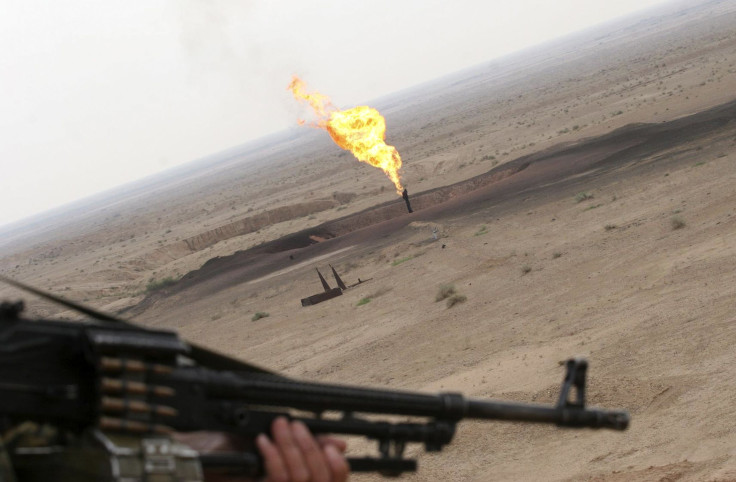Oil Prices Fluctuate Amid Iraqi Instability While Kurdistan Moves To Secure Oil In The North

Brent crude oil prices topped $113 per barrel on Monday as militants from the Islamic State of Iraq and Syria (ISIS) continue their campaign to topple the Iraqi government.
Brent prices were their highest and Brent volatility rose to 13 percent on June 12 from a 26-year-low of 7.2 percent just 10 days earlier. Brent crude, a type of sweet crude oil sourced from the North Sea, is used as a price benchmark for other crude oils.
Iraq is OPEC’s second-largest producer of oil and the instability has the market worried about the country's ability to keep up production amid a brutal conflict that has the potential to devolve into a civil war along sectarian lines.
“The oil market is reacting positively to the unrest,” said Bill O’Grady, chief market strategist at Confluence Investment Management. “If Baghdad really starts to run into trouble, it’s going to be very difficult to maintain production.”
A major determining factor for oil stability in the north of the country is how well Kurdish Peshmerga forces can hold on to oil-producing areas. While the Sunnis of ISIS and government-loyal Shi’ites appear ready for all-out sectarian war, the Kurdistan Regional Government (KRG) in the north of the country has been securing its territory and expanding outward. It's also been in talks with Iran, who have moved in troops to help secure Iraq from ISIS.
After ISIS drove away Iraqi military, Peshmerga took control of Kirkuk on Saturday, where its semi-legal pipeline to Ceyhan, Turkey, is capable of pumping over 1 million barrels of oil a day. (Kirkuk's oil field produced 650,000 barrels per day at its peak prior to the 2003 war.) With Kirkuk secured and having a stronger bargaining position than ever, the KRG argued on Monday it should get a quarter share of Iraq’s oil revenue, instead of the current 17 percent figure.
“We have been very patient. This has been an issue since the early 1960s, but obviously now we have a stronger position,” Safeen Dizayee, a KRG spokesman, said. “We have not ever, even in 2003 when we had the opportunity, tried to take control of Kirkuk and to make a de facto position and impose it.”
The Kurdish ministry of defense said it has no intentions of leaving Kirkuk or any of its controlled territory any time soon and ISIS appears willing to cooperate. A Peshmerga officer told Rudaw that an ISIS courier forwarded a message from the jihadis on Sunday: “If you don’t attack us, we would not attack you.”
Kurdistan sits on an estimated 45 million barrels of oil and it could gain control of even more oil fields in the coming conflict. According to Bloomberg Businessweek, if Kurdistan was a country, only nine other countries would have more oil. The KRG will move some of that oil via their Kirkuk-Ceyhan pipeline on June 22.
The market may be worried that Iraq's production will drop, but if it does it won't be because of instability in Kurdistan. Production levels are far more dependent on how well the Iraqi government can maintain security in the south of the county, where three quarters of its oil comes from. If KRG continues to secure the north, the real difference won't be how much oil comes out of the northern Iraq, but who gets paid for it.
© Copyright IBTimes 2025. All rights reserved.






















